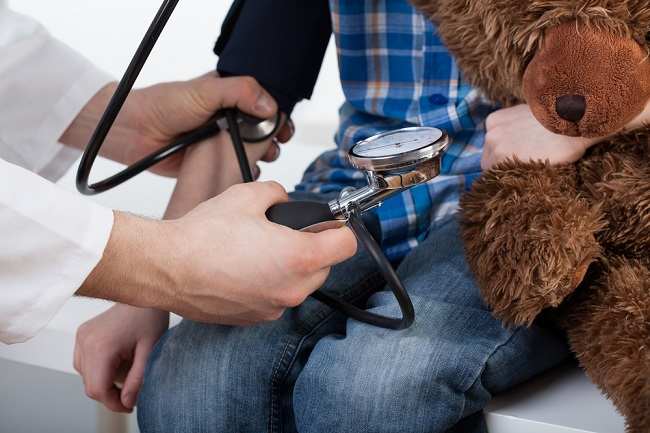The function of the coordination system is to launch body movements. When you want to do something, the cerebellum or cerebellum receives information from the nervous system in the body, nervespinal cord, and other parts of the brain. After all the information is united, then you can move as you wish smoothly.
The role of the cerebellum or cerebellum in you is very important. Although it doesn't cause paralysis or intellectual impairment, damage to the cerebellum can cause balance problems in your body, slowed body movements, and tremors or shaking.

Functions of the Coordination System of the Body and the Organs Involved
Coordination of body movements involves muscles, joints, and nerves. When you want to perform a movement, there are more than one type of muscles, joints and nerves involved and each component has a different role.
The function of the coordination system here is to control and coordinate the work of each part so that the resulting movement is smooth and on target.
The cerebellum will receive several signals from all over the body, such as the position of the body in relation to the environment and the field of movement carried out. After that the cerebellum will process the information and determine what posture is in accordance with the current body position.
The cerebellum will also determine the portion of the movement of each muscle involved in the movement, so that muscle movements become smooth. For example, if you are walking on an inclined plane, it is the cerebellum that plays a role in coordinating the movement of the thigh muscles, calf muscles, and foot muscles as well as the proper position of the body on the inclined plane, so that you can walk and not fall.
In addition, the function of the coordination system is also related to one's intelligence or achievement. This is evidenced in a study which states that a child who often exercises and is active tends to be more successful in school than a child who is lazy or inactive.
Diseases of the Coordination System Function
The function of the coordination system may be impaired. This can make body movements experience abnormalities so that it can interfere with daily activities. Some diseases in the function of the coordination system that often occur are:
Ataxia
Ataxia is a degenerative disease that affects the function of the coordinating system of the brain, brainstem, or spinal cord. Ataxia causes the sufferer's movements to become jerky and oscillating. In fact, people with ataxia often fall when walking because of an unstable gait.
The most common symptoms of ataxia are loss of balance and coordination, problems with speech, difficulty swallowing, and tremors.
Parkinson's disease
This disease is also a type of degenerative disease that is common in the elderly. People with Parkinson's disease experience impaired function of the coordination system in the brain. This causes characteristic movement disorders such as tremors, slowed and stiff body movements, and difficulty maintaining balance.
Dyspraxia
Dyspraxia is a disorder when messages sent from the brain to the muscles are interrupted. This causes problems with movement and coordination system function. Usually, this disease or disorder occurs since childhood. However, adults can also get this disease if they have an illness or injury.
Generally, children who are affected by this disease will have difficulty writing, following commands, and have difficulty speaking and listening.
Early signs of dyspraxia can be seen in babies who are late to be able to sit, crawl, and walk. As they get older, children become careless, prone to accidents, and take longer to learn to ride a bicycle.
Developmental Coordination Disorder
This developmental coordination disorder is estimated to affect about 5–6 percent of children. This disorder or disease is characterized by difficulty in learning fine and gross motor skills, compared to children his age.
This disorder not only causes problems with physical development, but also affects social skills. Symptoms include difficulty performing motor skills, such as using scissors, catching a ball, or riding a bicycle.
The function of the coordination system is very important in a person's life. This can be seen from the impact of disturbances in the coordination system that can make it difficult for a person to carry out activities, even simple ones such as walking, and experience a drastic decrease in work performance.
Often people with severe coordination system dysfunction need the help of a device to move independently or perhaps a special assistant to help them do things they can't do on their own, such as feeding with a spoon or taking a bath.
Therefore, if you find it difficult to control body movements, fall more often, or feel a difference in body movements, immediately consult a doctor so that the cause of your complaint can be immediately identified and treated.









